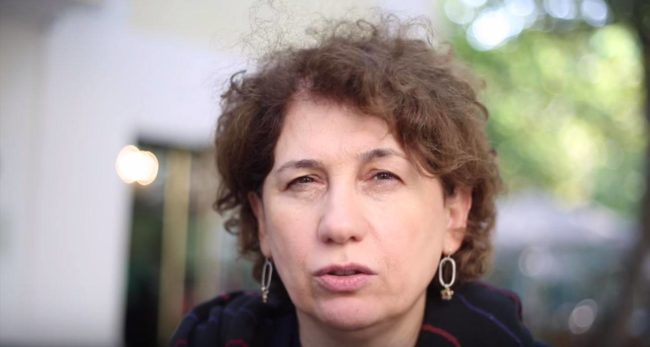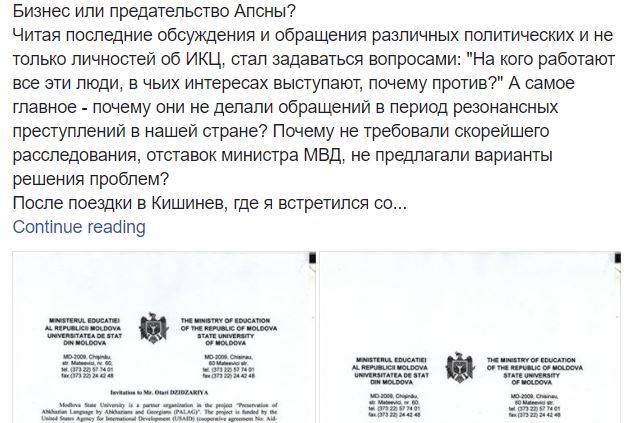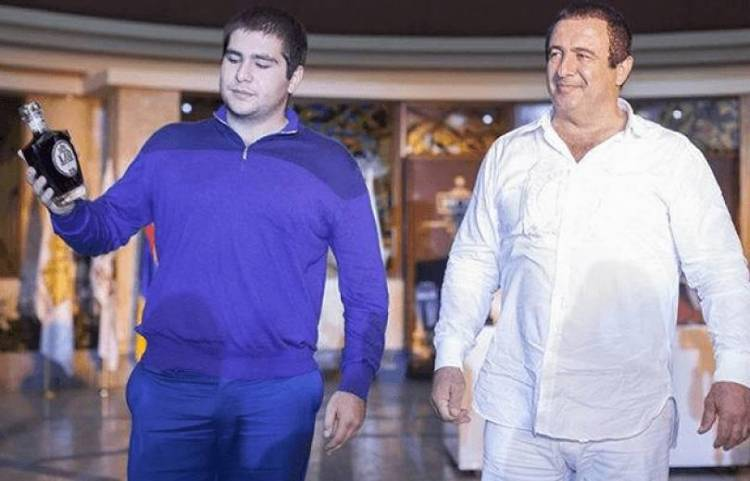
 A group of activists, writers, and students in Abkhazia are facing public criticism for participating in joint projects with Tbilisi-based peacebuilding organisations. The backlash came after an anonymous Facebook profile published personal details of participants of a peacebuilding project
A group of activists, writers, and students in Abkhazia are facing public criticism for participating in joint projects with Tbilisi-based peacebuilding organisations. The backlash came after an anonymous Facebook profile published personal details of participants of a peacebuilding project
‘Who are they rooting for?’
On 24 July, an anonymous Facebook profile under the name Timur Kodory published details of participants from both the Georgian and Abkhazian sides of the US Agency for International Development funded Preservation of Abkhaz Language by Abkhaz and Georgians (PALAG) programme. This included their names and the honorariums they received for participation.
Georgian media outlet Netgazeti broke the story.
The post accused the project of tempting Abkhazian students into cooperating with Georgia, while the original project descriptions referred to Abkhazia as part of Georgia, and the logo of the Georgian organisation, the Centre for Civil Integration and Inter-Ethnic Relations (CCIIR) shows a map which represents Abkhazia as part of Georgia.
The post questioned ‘how is the influence of Georgians on our citizens, especially on youth, controlled?’ and ‘how soon will Abkhazia lose its independence as a result of such an approach to the education of young people and become an appendage of Georgia again?’
It led to widespread online discussions in Abkhazia, with many accusing NGOs of treason, with one asking ‘who are they rooting for?’
Some in the media were quick to denounce the post, as well as the public reaction to it.
Vitaliy Sharia, a journalist for RFE/RL’s Ekho Kavkaza, referred to the public outrage as a ‘witch-hunt’.
Ten members of the independent Union of Writers of Abkhazia released a statement condemning the publication, and accusing the author of acting as judge, jury, and executioner, according to Abkhazian media outlet AbkhazInform.
Abkhazian journalist Nadezhda Venediktova denounced the accusations. ‘Abkhazian citizens should participate in similar events and try to promote the interests of their country’, she wrote.
Netgazeti reported that some activists connected the allegations with the opening of a new anti-crime centre in Abkhazia. The centre will coordinate with Russian police.

‘Attempt to discredit NGOs’
Liana Kvarchelia from the Centre of Humanitarian Programmes, an organisation founded in 1993 after the War in Abkhazia, claimed the post was an attempt to discredit Abkhazia’s civil society.
She said that Abkhazian NGOs are important for Abkhazian statehood as they challenge ‘the unilateral Georgian coverage of events’, as well as playing an important role in de-isolating Abkhazia internationally. She accused certain ‘anonymous and non-anonymous people in social networks’ of trying to torpedo these efforts.
Kvarchelia has previously said that NGOs in Abkhazia sometimes hide details of their projects for fear of a possible backlash.
[Read analysis from The Analyticon: Challenges faced by NGOs in Abkhazia]
As an example, Kvarchelia details a project not widely publicised which allowed students from Abkhazia, South Ossetia, and Nagorno-Karabakh to receive scholarships in British universities as students from the ‘South Caucasus’, a politically neutral term.
Despite not publicly advertising their activities, Kvarchelia says they always discuss them with the Abkhazian authorities. ‘There was practically not a single foreign minister of Abkhazia with whom we did not discuss our plans, projects, and ideas’, she added.
For ease of reading, we choose not to use qualifiers such as ‘de facto’, ‘unrecognised’, or ‘partially recognised’ when discussing institutions or political positions within Abkhazia, Nagorno-Karabakh, and South Ossetia. This does not imply a position on their status.




 16 August 2017
16 August 2017


